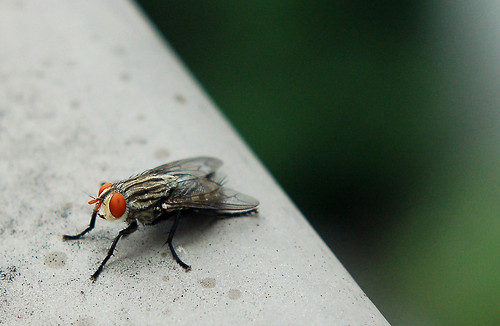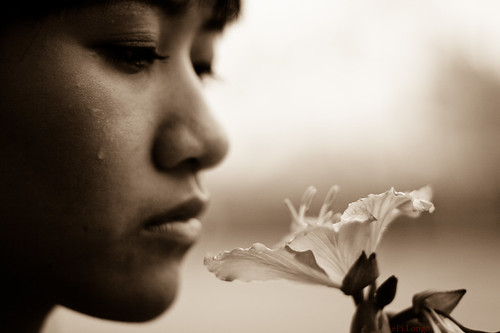It's not your typical horror story, but Lord of the Flies scared the bejesus out of me when I read it. The story was even more horrifying as a movie. If you can't figure out what's scary about a group of young boys marooned together in a remote location, you've never had brothers...and you've also never read this book. It's time to familiarize yourself with this terrifying dystopian tale.
The Book
William Golding published
Lord of the Flies in 1954. He was
waaayyy ahead of the current dystopian trend. It was his first novel, it was adapted into a movie and it's still read in schools all over the world. It's so controversial, people are still fighting it's use as a teaching tool today.
To me, this book always meant one thing: get a group of guys together, and the wheels just fall off the cart. But actually, Lord has a lot of deep symbolism and important meaning (so they say).
Here's how it goes down: there's a nuclear war. Britain is being evacuated, but a plane carrying civilians crashes in the Pacific Ocean. As a result of this event, a group of school children have been marooned on a remote island. One group is a choir, and they have a leader with them, but most of them have never met each other before this. However, they are all pretty well-educated and they're all refined Brits (it's a British book, by the way).
Not for long. The story is about how the boys turn -- rather quickly, as it would happen -- into total barbarians. It gets nasty. In the beginning, two of the boys find a large conch (a type of shell). Blonde Ralph and overweight "Piggy" use the conch as a horn to signal others. In this fashion, Ralph becomes the official leader of the band of survivors. The boys' choir, led by redhead Jack Merridew, does not vote for him. The rules are simple. Ralph will work on a smoke signal for passing ships, and the conch will be used as a symbol. Whoever holds it may speak at formal meetings.
Jack turns the choir into a hunting group that will find food. Ralph is a clear leader for the "biguns" (the older boys) and though Piggy is his right-hand-man (so to speak), he is the outcast of the group. Simon is the third leader, in charge of constructing shelter and of herding the "littluns" (the younger boys).
The structure doesn't last worth a darn, and soon boys are being lazy and telling stories about a monster they believe lives on the island. Jack promises to kill the monster to gain esteem among the boys, because he wants to wrest control away from Ralph.
Soon enough, Jack has developed his own tribe at Castle Rock (a mountain of stone and a source of inspiration for Stephen King) and begins acting strangely. Simon ends up going a little crazy, and he discovers the Lord of the Flies -- a severed pig head.
Things get much, much worse from here. There is violence, there is bloodshed...there's a lot of completely primitive behavior, and this is why the book remains controversial. You'll have to read it to get all the gory details, and drop your jaw at the very surprising twist ending (it shocked the heck out of me, anyway).
The Film
Lord of the Flies had been majorly adapted to film only twice, the first time in 1963. Plotwise, the story is very faithful to the book. However, much of the movie was not even scripted. Most of the boys in the movie had not read the book and were not given much dialogue to memorize. Instead, the director explained each scene to the boys and then allowed them to act it out. Therefore, much of the speech is changed on film. But since the main plot points are depicted, this remains the best version of the story.

But if you're hankering for a newer one, the book was adapted again in 1990. This time around, a lot of the plot was changed. The boys are American and they attend a military school, already a huge change. Only one school is present on the island, but in the film there were two. Ralph isn't mean to Piggy in this version, and the phrases "biguns" and "littluns" are omitted entirely. The movie also has a lot more profanity, perhaps because that's more realistic when the characters are American. Some of the violence of the book is toned down. None of the boys look like they should. But much of the original ending remains intact, though the dialogue is changed.
What Got Adapted?
There are more minor differences from the book in both films, but you'll have to read the story to discover them. It's frightening, and that makes it a perfect October read.











.png)















